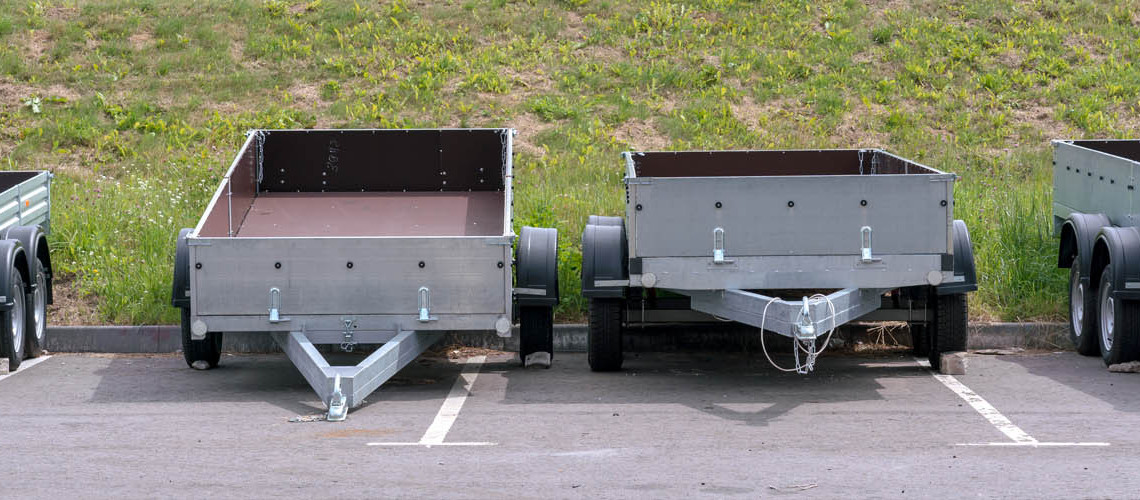Is It Better to Rent Your Trailer Long-Term or Short-Term? Pros and Cons
- April 9, 2025
- Trailer Rentals
When you start a trailer rental business, one of the key decisions you’ll face is whether to rent your trailers for long-term... Read More

Starting a trailer rental business can be a profitable venture, but one of the most important decisions you’ll make is choosing the right trailer. The type of trailer you invest in can affect everything from your target market to your profit margins. In this post, we’ll explore the different types of trailers available and help you choose the one that aligns with your business goals, market demand, and budget.
Whether you’re renting for moving, hauling, or recreational purposes, selecting the right trailer is crucial for both attracting customers and maintaining the longevity of your investment.
Before you even start thinking about what kind of trailer to buy, it’s important to assess your target market. Who will be renting your trailers? What are their primary needs? Different customers have different requirements, so understanding your audience will help guide your decision.
Who are your potential customers?
What are they hauling?
Consider the types of goods or items that are most commonly hauled in your area. For example, if you’re located near a college campus, renting trailers for moving dorm items might be popular. If you’re near a popular lake or outdoor recreation area, people may need trailers for hauling boats or camping gear.
Tip: Do some local market research to determine the most common needs in your area. This will help you select trailers that are in high demand and maximize your rental income.
There are several different types of trailers available, and each serves a different purpose. Below are some of the most common types you might want to consider, based on your market:
Best for: General hauling of goods, furniture, construction materials, and lawn equipment.
Utility trailers are among the most versatile options and can be used for a wide variety of tasks. They come in various sizes and weight capacities, making them suitable for both personal and commercial use.
Pros:
Cons:
Tip: Utility trailers are great for attracting DIY renters, movers, or small businesses. If you’re in a high-traffic area for moving or landscaping, this type could be a good starting point.
Best for: Storing and transporting goods that need protection from weather or theft (e.g., delicate equipment, valuables, or seasonal items).
Enclosed trailers have walls and a roof, providing full protection for whatever is being hauled. These trailers are perfect for people transporting valuables, fragile items, or anything that needs to stay dry.
Pros:
Cons:
Tip: Enclosed trailers are popular for moving, storing, or transporting high-value items. They also appeal to businesses or individuals who need extra security or weather protection.
Best for: Transporting vehicles (cars, motorcycles, ATVs, etc.).
Car haulers are a specialized type of trailer designed specifically for towing vehicles. These trailers come in two variations: open and enclosed. Open car haulers are most common, but enclosed car haulers are preferred by high-end car owners or those transporting vehicles over long distances.
Pros:
Cons:
Tip: If your market includes car enthusiasts, auto dealerships, or people moving vehicles (e.g., military members or snowbirds), this type of trailer could be highly profitable.
Best for: Hauling large, heavy loads such as construction equipment, lumber, or machinery.
Flatbed trailers are simple, with no sides or roof. They are perfect for hauling oversized loads that don’t require protection from the elements. They are often used by contractors and landscapers who need to move heavy equipment or materials.
Pros:
Cons:
Tip: If your area has a significant amount of construction, landscaping, or commercial activity, a flatbed trailer may be a solid investment, especially if you cater to businesses.
Best for: Large-scale hauling, especially for commercial use (e.g., transporting livestock, heavy machinery, large equipment).
Gooseneck trailers are designed with a hitch that attaches to the truck bed instead of the bumper, making them ideal for hauling larger loads. They are often used by contractors, farmers, and people who need to transport heavy equipment or livestock.
Pros:
Cons:
Tip: Gooseneck trailers are ideal if you’re catering to businesses or individuals with heavy-duty needs. However, they’re a niche market, so you’ll want to be sure that demand in your area justifies the investment.
Once you’ve decided on the type of trailer, the next step is to determine the appropriate size and weight capacity based on what your customers will typically need.
Tip: Start with a smaller fleet to minimize upfront costs and expand as demand grows. Also, having a variety of trailer sizes and types will give you more flexibility and appeal to a broader range of customers.
The durability of your trailer is directly tied to your long-term profitability. High-quality, well-constructed trailers will last longer and require fewer repairs, saving you money over time.
Tip: Invest in high-quality trailers and regularly maintain them to avoid costly repairs and keep your fleet in good condition.
When choosing your trailer, it’s important to consider your budget. Prices can vary significantly depending on the type, size, and features of the trailer. Generally, open trailers are more affordable, while specialized trailers like car haulers or enclosed models can be more expensive.
Tip: You don’t need to start with a large fleet. Consider buying a couple of high-demand trailers to get started, and then reinvest your profits into adding more trailers over time.
Choosing the right trailer for your rental business is crucial to your success. Start by understanding your target market, selecting trailer types that meet customer needs, and considering factors like size, weight capacity, and maintenance. By carefully considering these factors and doing some local market research, you can build a strong foundation for your trailer rental business that meets both your customers’ needs and your business goals.
With the right trailers, your rental business can grow quickly, and you’ll be able to provide valuable solutions to your customers while maximizing your profits.